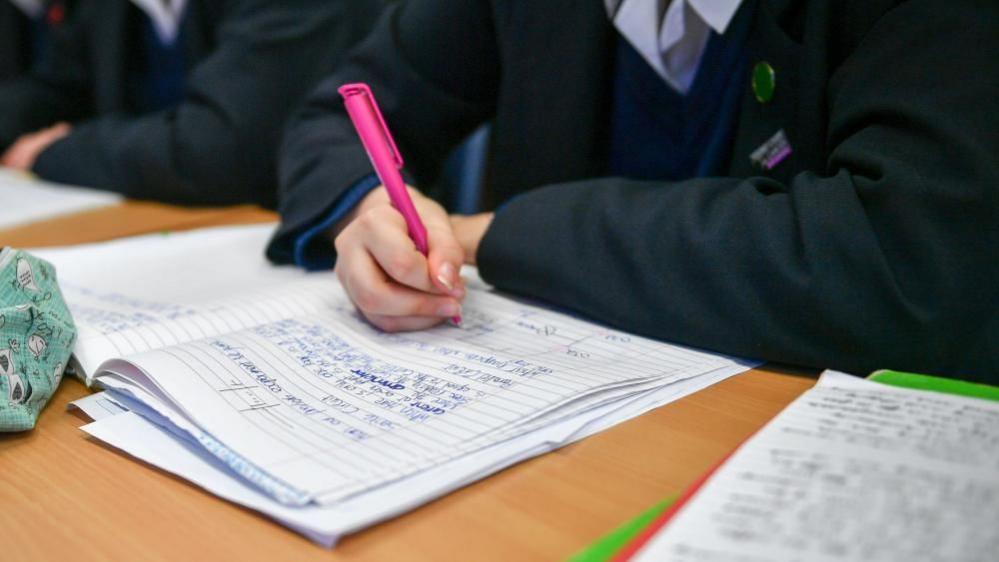Plan to address 'systemic failings' in SEND service

A report found "widespread" failings in SEND provision at Sheffield City Council
- Published
A council is due to address findings of "widespread and/or systemic failings" in its services for children and young people with special educational needs (SEND).
Ofsted said "significant concerns about the experiences and outcomes" needed to be addressed "urgently" by Sheffield City Council and NHS South Yorkshire Integrated Care Board partnership.
Inspectors found the quality of education, health and care plans had been "systemically weak" and sometimes did not meet statutory guidance.
A manifesto and improvement plan were submitted to the Department of Education in August, setting out an 18-month and five-year plan for the partnership's SEND services.
Ofsted inspectors said council leaders had highlighted their aspirations but had not developed the strategy to deliver them, so its "ambition does not yet impact on children and young people".
Although some adolescent services had reduced waiting times, the report said delays were still too long in mental health services, speech and language therapy, and diagnostic services.
The need for families to get a GP referral for specialist services further contributed to delays, the Local Democracy Reporting Service stated.
The report said communication across the council-NHS partnership was improving, but communication about individual children remained "poor".
Young people, their parents or guardians and health and social care professionals did not have the opportunity to contribute to plans when a child's needs changed.
The report said the partnership therefore "cannot assure that they are meeting the current needs of children and young people".
Young people with SEND were also not supported enough when transitioning from primary to secondary school and then to post-16 education, inspectors found.
"The impact of this is that too many children and young people with SEND are suspended and/or excluded from secondary school in comparison to their peers," they said.
"Some families choose elective home education when they feel that their child's needs are not being met or to avoid the permanent exclusion of their child from school."
The council's education committee will meet on Tuesday to respond to the findings and discuss actions to be taken by the partnership, and the newly established SEND improvement board will meet on 5 September.
Ofsted are due to carry out a monitoring inspection after 18 months and a reinspection in around three years.
Get in touch
Tell us which stories we should cover in Yorkshire
Listen to highlights from South Yorkshire on BBC Sounds, catch up with the latest episode of Look North
Related topics
- Published3 June

- Published17 June

- Published4 June
